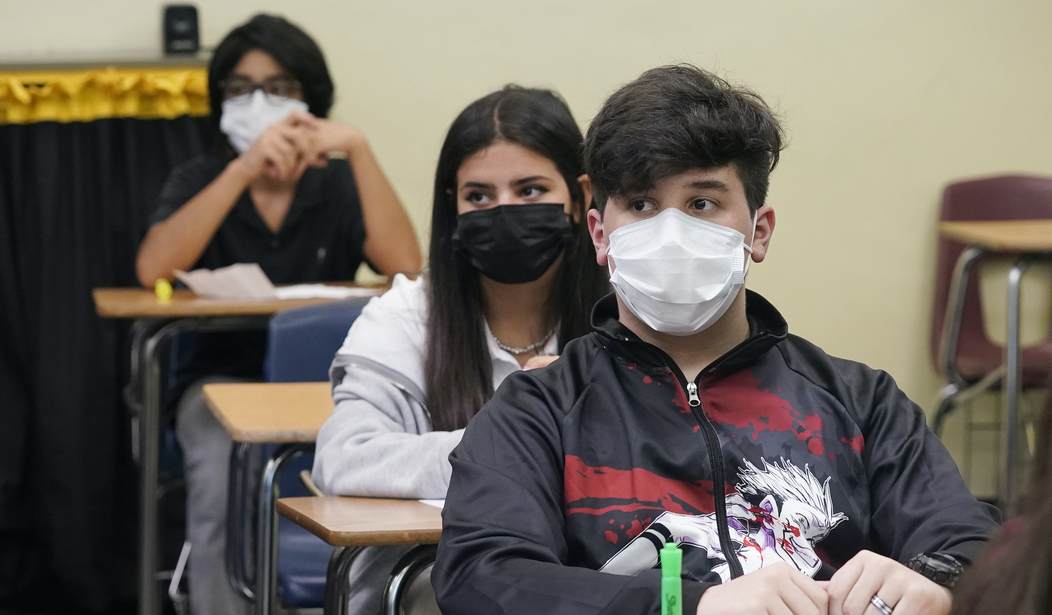President Joe Biden wants to see kids learning in-person at school, or so the White House tells us. It may be a bit challenging to believe that he and his party are actually committed to seeing it through, though, when House Democrats on Tuesday blocked consideration of the Reopen Schools Act, offered by Rep. Ashley Hinson (R-IA). This is the fifth time that the bill has been offered for consideration, only to be blocked by Democrats.
According to a summary from Rep. Hinson, the "legislation would condition state COVID relief grants for education on schools reopening so that students can get back in the classroom safely."
A bullet point goes on to note that "In December, Congress sent states $54 billion dollars for K-12 schools to reopen safely. Rep. Hinson’s bill would ensure this money is used for its intended purpose, so that students can get back in the classroom safely and soon."
Rep. Hinson spoke on the House floor about her bill, explaining that "our amendment would ensure that students are no longer kept out of the classroom and forced to learn from behind a screen. It would ensure that parents are able to return to the workplace. It would help combat the ongoing youth mental health crisis spurred by school closures."
Her remarks also reminded her fellow members that to "condition federal covid grants to schools on those schools actually being open and operating in the first place which is what that money was intended to do."
FLOOR ALERT: @HouseDemocrats just blocked @HouseGOP requests to consider @RepAshleyHinson's #ReopenSchools Act, which ensures funding ALREADY provided by Congress actually goes toward getting America's children out from behind screens & back in the classroom. pic.twitter.com/dfga3ZZGjq
— House Rules Republicans (@RulesReps) January 11, 2022
As Hinson indicated, students are suffering from not being back in school. The summary points out how this is not an issue affecting only a handful of students, but rather "only one-third of K-12 schools across the country currently have an in-person learning option available for students." It's not only Republican members of Congress who are raising the alarm of the long-term consequences of children not receiving in-person learning, though.
Recommended
For January 10, 2022, the Burbio tracker lists 4,179 "Active School Disruptions." The update for January 12 specifically makes note of the Chicago school district, where teachers have gone on strike and refused to return to the classroom, due to their concerns with the Omicron variant of the Wuhan coronavirus.
While Omicron is more transmissible, to the point where Dr. Anthony Fauci said "just about everybody" will become infected with it, it is much more mild than the Delta variant. Multiple studies from several countries have shown that it is less likely to result in hospitalization. Speaking of Fauci, even he says it's "safe enough" for schools to remain open.
A piece of mine from last month also highlighted coverage from the experts of how children are worse off, and for years to come, because of the time they've missed in the classroom.
According to my reporting from last December:
As Landon reported on Sunday, Dr. Jha also said during his appearance on ABC's "This Week" that a spike in cases shouldn't be the "major metric" anymore, but rather the focus should be on hospitalizations and death.
On December 20, The New York Times published a guest essay by Dr. Joseph G. Allen, "We Learned Our Lesson Last Year: Do Not Close Schools."
Dr. Allen's particularly lengthy piece discusses how the "harms to kids from being out of school... are severe. They are accumulating. And they could last for decades... All of these effects were predictable and, in fact, predicted. And they must not be repeated."
...
It's worth mentioning that The New York Times notes that Dr. Allen "is an associate professor and director of the Healthy Buildings program at Harvard T.H. Chan School of Public Health. He is also the chair of the Lancet Covid-19 Commission Task Force on Safe Work, Safe School and Safe Travel and a co-author of “Healthy Buildings."
That mental health crisis was also discussed in depth by Justine Coleman for The Hill on December 24.
Even MSNBC's Brian Stelter on "Reliable Sources" earlier this month raised issues with closing schools again.
In light of the Chicago Teachers Union strike, Guy on Friday highlighted a "Morning Newsletter" from David Leonhardt with The New York Times, "No Way to Grow Up."
If the money is not being used for what it was intended, then, it's worth asking what good such government spending is.
























Join the conversation as a VIP Member